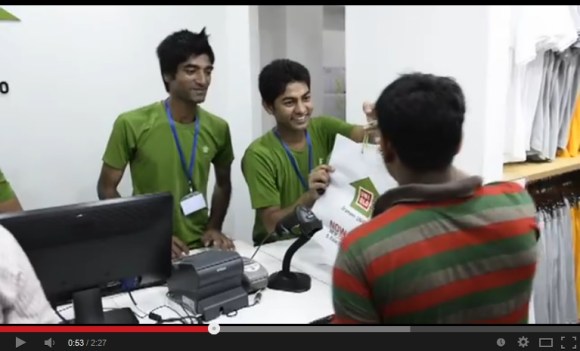 Clothing stores which quickly and cheaply offer fashions based on the latest trends such as H&M and Zara have been enjoying a high level of popularity, especially in the last decade. Shops following this model known as “fast fashion” can also be found in Japan with its largest by far being Uniqlo.
Clothing stores which quickly and cheaply offer fashions based on the latest trends such as H&M and Zara have been enjoying a high level of popularity, especially in the last decade. Shops following this model known as “fast fashion” can also be found in Japan with its largest by far being Uniqlo.
Recently we ran an article speculating why Japanese companies are slow to take risks, but that’s not always the case. In the highly competitive and globalized world of fast fashion sometimes you have to make big moves. That’s just what Uniqlo did, and they moved right into Bangladesh, which has been deemed a “least developed country” by the UN.
■ Welcome to Bangladesh
While Bangladesh is considered a least developed country, it is also seen as a fast growing economy and was chosen as one of the “Next Eleven” countries to become a major economy this century by Goldman Sachs. Add to this the massive Bangladeshi population (8th largest in the world) and you have a potentially lucrative market.
So while their competitors are busy wooing the padded wallets of developed nations, Uniqlo ventured into the uncharted consumer base of this small but crowded South Asian country.
■ Setting up shop
Uniqlo partnered up with Nobel Peace Prize recipient Garmeen Bank and sent a team of Japanese representatives to work closely with the Bangladeshi management and employees to ensure the Uniqlo experience was maintained in this distant branch. Six months of market research was conducted to select the right merchandise to offer the locals. The shop’s line of outfits drew a very positive response from respondents who liked what they saw.
Everything was looking good. Uniqlo founder, president and richest man in Japan, Tadashi Yanai, must have been optimistic with the envisioned slogan of “From Dhaka to New York” pronouncing the vast reach of his clothing retailer.
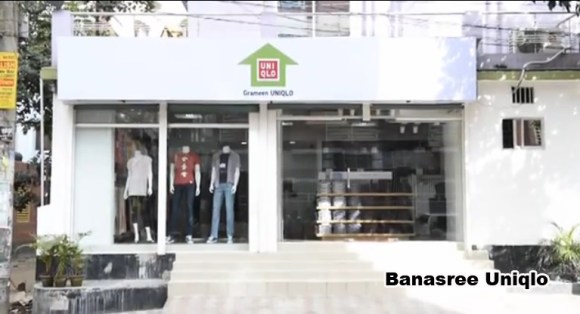
■ Opening
As the first Uniqlo shop was set to open its doors in the Bangladeshi capital of Dhaka, 200 people lined up in front of the store. Everything was looking good for a successful penetration of the market, and a second store was already in the works.
However, according to Kigyo Insider not too long after, sales fell into a slump. No one was buying anything and the company was starting to worry. The market research that had taken over half a year revealed that Bangladeshi women liked the look of Uniqlo’s goods, so why weren’t they buying.
The answer, they learned, could have been assumed from a simple Google Image search of “Bangladeshi women.”
As you can probably gather from the images, women in Bangladesh pretty much only wear saris, a traditional Indian garment sorely lacking from Uniqlo’s repertoire. While they appreciated the look of the clothes, it just wasn’t something the women were actually going to wear. Follow-up research from the company revealed that sure enough, only 10 percent of women surveyed wore casual western style clothes – a substantial decrease from their initially assumed customer-base.
■ Damage Control
With new revelation at hand, Uniqlo President Yanai sternly ordered that Uniqlo start producing some saris as soon as possible. Meanwhile the Bangladeshi branches would sell saris and other regional clothing that were produced by other shops. Once the proper designs were made and production was underway, then Uniqlo could offer their own line of outfits more suited to the tastes of those around.
From the internet, criticism arose over the incident saying it was “pretty sloppy marketing by Uniqlo” and it was like “selling hair tonic to a Buddhist monk.” That last comment in particular describes the situation best. Much like the old salesman compliment of “could sell an icebox to an igloo” this could either be a complete flop or the greatest achievement of the company.
■ One Win Nine Losses
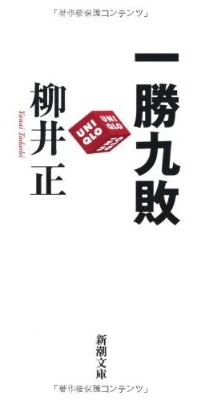
This expansion is far from over with two more stores scheduled to open in Dhaka . Even if this endeavor goes belly-up, it probably won’t be too much skin off Uniqlo’s back end. As a developing country, labor in Bangladesh is cheap and the country already has a massive amount of clothing production facilities in place. Considering these factors, there probably isn’t as much money on the line compared to other launches.
Uniqlo probably has a lot to gain and comparatively little to lose in this risk. If they succeed we may someday say great salespeople “could sell a Mickey Mouse Milkman shirt to a Bangladeshi.”
Source: Grameen Uniqlo: website, facebook (English) via Blogos – Kigyo Insider (Japanese)
Video: YouTube – UNIQLOUSA
Images: Amazon, Uniqlo
▼ Uniqlo is getting some heavy support from Nobel Peace Prize winner and founder of Grameen Bank, Muhammad Yunus for their support in charitable works in Bangladesh.
▼ A promotional video for Grameen Uniqlo

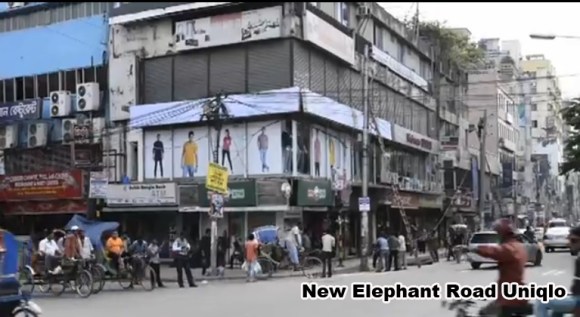
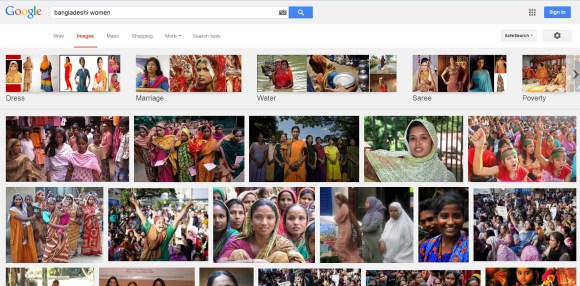
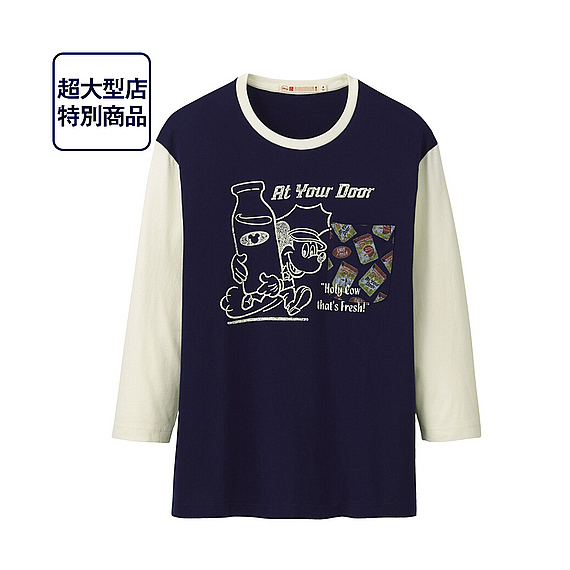
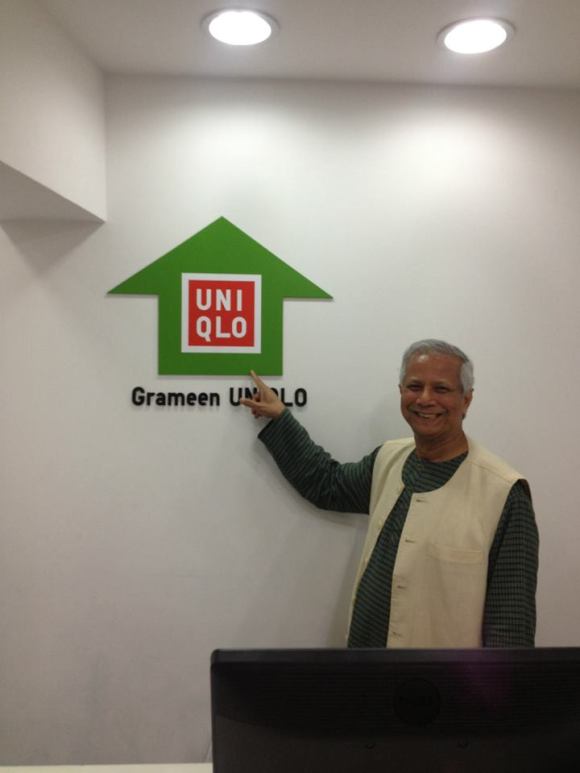
 Ukraine’s ambassador to Japan criticises Uniqlo for continuing to trade in Russia
Ukraine’s ambassador to Japan criticises Uniqlo for continuing to trade in Russia Uniqlo’s new “communist dictator” jacket has Japanese commenters confused and snickering【Photos】
Uniqlo’s new “communist dictator” jacket has Japanese commenters confused and snickering【Photos】 Uniqlo Pokémon T-shirt grand prize-winner disqualified for violating contest rules
Uniqlo Pokémon T-shirt grand prize-winner disqualified for violating contest rules Japanese clothing chain Uniqlo now selling flowers online, they’re way better than we imagined
Japanese clothing chain Uniqlo now selling flowers online, they’re way better than we imagined Uniqlo’s new Dragon Ball T-shirts and hoodies modeled for the first time【Photos】
Uniqlo’s new Dragon Ball T-shirts and hoodies modeled for the first time【Photos】 McDonald’s new Happy Meals offer up cute and practical Sanrio lifestyle goods
McDonald’s new Happy Meals offer up cute and practical Sanrio lifestyle goods All-you-can-drink Starbucks and amazing views part of Tokyo’s new 170 meter-high sky lounge
All-you-can-drink Starbucks and amazing views part of Tokyo’s new 170 meter-high sky lounge Studio Ghibli releases new action figures featuring Nausicaä of the Valley of the Wind characters
Studio Ghibli releases new action figures featuring Nausicaä of the Valley of the Wind characters Studio Ghibli glasses cases let anime characters keep an eye on your spectacles
Studio Ghibli glasses cases let anime characters keep an eye on your spectacles McDonald’s Japan releases a pancake pie for new retro kissaten coffeeshop series
McDonald’s Japan releases a pancake pie for new retro kissaten coffeeshop series Hidden oasis on a Japanese department store rooftop is home to Monet’s Pond in Tokyo
Hidden oasis on a Japanese department store rooftop is home to Monet’s Pond in Tokyo Kyoto’s 100 Demons yokai monster parade returns!
Kyoto’s 100 Demons yokai monster parade returns! Super Nintendo World expansion gets delayed for several months at Universal Studios Japan
Super Nintendo World expansion gets delayed for several months at Universal Studios Japan Hamster abandoned at Tokyo ramen restaurant gets new home
Hamster abandoned at Tokyo ramen restaurant gets new home Hey, Japanese taxi driver! Take us to your favorite restaurant in Tsuruga City!
Hey, Japanese taxi driver! Take us to your favorite restaurant in Tsuruga City! Disney princesses get official manga makeovers for Manga Princess Cafe opening in Tokyo
Disney princesses get official manga makeovers for Manga Princess Cafe opening in Tokyo More foreign tourists than ever before in history visited Japan last month
More foreign tourists than ever before in history visited Japan last month Starbucks reopens at Shibuya Scramble Crossing with new look and design concept
Starbucks reopens at Shibuya Scramble Crossing with new look and design concept Beautiful new Final Fantasy T-shirt collection on the way from Uniqlo【Photos】
Beautiful new Final Fantasy T-shirt collection on the way from Uniqlo【Photos】 Is the new Shinkansen Train Desk ticket worth it?
Is the new Shinkansen Train Desk ticket worth it? Foreign English teachers in Japan pick their favorite Japanese-language phrases【Survey】
Foreign English teachers in Japan pick their favorite Japanese-language phrases【Survey】 Japanese convenience store packs a whole bento into an onigiri rice ball
Japanese convenience store packs a whole bento into an onigiri rice ball We try out “Chan Ramen”, an underground type of ramen popular in the ramen community
We try out “Chan Ramen”, an underground type of ramen popular in the ramen community Studio Ghibli releases Kiki’s Delivery Service chocolate cake pouches in Japan
Studio Ghibli releases Kiki’s Delivery Service chocolate cake pouches in Japan Japan’s bone-breaking and record-breaking roller coaster is permanently shutting down
Japan’s bone-breaking and record-breaking roller coaster is permanently shutting down New definition of “Japanese whiskey” goes into effect to prevent fakes from fooling overseas buyers
New definition of “Japanese whiskey” goes into effect to prevent fakes from fooling overseas buyers Our Japanese reporter visits Costco in the U.S., finds super American and very Japanese things
Our Japanese reporter visits Costco in the U.S., finds super American and very Japanese things Studio Ghibli unveils Mother’s Day gift set that captures the love in My Neighbour Totoro
Studio Ghibli unveils Mother’s Day gift set that captures the love in My Neighbour Totoro Foreign passenger shoves conductor on one of the last full runs for Japan’s Thunderbird train
Foreign passenger shoves conductor on one of the last full runs for Japan’s Thunderbird train Domino’s Japan now sells…pizza ears?
Domino’s Japan now sells…pizza ears? New Japanese KitKat flavour stars Sanrio characters, including Hello Kitty
New Japanese KitKat flavour stars Sanrio characters, including Hello Kitty Kyoto creates new for-tourist buses to address overtourism with higher prices, faster rides
Kyoto creates new for-tourist buses to address overtourism with higher prices, faster rides Sales of Japan’s most convenient train ticket/shopping payment cards suspended indefinitely
Sales of Japan’s most convenient train ticket/shopping payment cards suspended indefinitely Sold-out Studio Ghibli desktop humidifiers are back so Totoro can help you through the dry season
Sold-out Studio Ghibli desktop humidifiers are back so Totoro can help you through the dry season Japanese government to make first change to romanization spelling rules since the 1950s
Japanese government to make first change to romanization spelling rules since the 1950s Ghibli founders Toshio Suzuki and Hayao Miyazaki contribute to Japanese whisky Totoro label design
Ghibli founders Toshio Suzuki and Hayao Miyazaki contribute to Japanese whisky Totoro label design Doraemon found buried at sea as scene from 1993 anime becomes real life【Photos】
Doraemon found buried at sea as scene from 1993 anime becomes real life【Photos】 Tokyo’s most famous Starbucks is closed
Tokyo’s most famous Starbucks is closed One Piece characters’ nationalities revealed, but fans have mixed opinions
One Piece characters’ nationalities revealed, but fans have mixed opinions We asked a Uniqlo employee what four things we should buy and their suggestions didn’t disappoint
We asked a Uniqlo employee what four things we should buy and their suggestions didn’t disappoint Princesses, fruits, and blacksmiths: Study reveals the 30 most unusual family names in Japan
Princesses, fruits, and blacksmiths: Study reveals the 30 most unusual family names in Japan Is this the set of the new Blade Runner film? No, it’s Uniqlo in New York
Is this the set of the new Blade Runner film? No, it’s Uniqlo in New York Uniqlo introduces special range of “modest clothing” for Muslims in Singapore and Malaysia
Uniqlo introduces special range of “modest clothing” for Muslims in Singapore and Malaysia Uniqlo now sells flowers in Tokyo, but are they on brand with quality for price?
Uniqlo now sells flowers in Tokyo, but are they on brand with quality for price? Uniqlo introduces new international range of authentic and stylish Kabuki-inspired clothing
Uniqlo introduces new international range of authentic and stylish Kabuki-inspired clothing Uniqlo reverses position, will close all stores in Russia
Uniqlo reverses position, will close all stores in Russia Would you date a girl dressed head to toe in Uniqlo? 76% of men say “of course!”
Would you date a girl dressed head to toe in Uniqlo? 76% of men say “of course!” Secret otaku certification test: Can you see the video game cosplay hidden in this clothing ad?
Secret otaku certification test: Can you see the video game cosplay hidden in this clothing ad? Uniqlo to offer four-day work week to working mothers
Uniqlo to offer four-day work week to working mothers We asked a Uniqlo employee what four things we should buy and their suggestions didn’t disappoint
We asked a Uniqlo employee what four things we should buy and their suggestions didn’t disappoint Mayhem at Uniqlo in Japan as customers fight to grab the Jil Sander collection
Mayhem at Uniqlo in Japan as customers fight to grab the Jil Sander collection Uniqlo and GU announce they will now charge for shopping bags in a new, eco-friendly initiative
Uniqlo and GU announce they will now charge for shopping bags in a new, eco-friendly initiative Uniqlo opens its first Furugi Project secondhand clothing pop-up shop in Tokyo
Uniqlo opens its first Furugi Project secondhand clothing pop-up shop in Tokyo Uniqlo sister brand GU’s masks have one advantage over Uniqlo’s Airism masks
Uniqlo sister brand GU’s masks have one advantage over Uniqlo’s Airism masks New Uniqlo x Pokémon collection coming to Japan this month!
New Uniqlo x Pokémon collection coming to Japan this month! Survey reveals Uniqlo’s most popular winter clothing beats its peers by a fair margin
Survey reveals Uniqlo’s most popular winter clothing beats its peers by a fair margin We coordinate a head-to-toe look for just 1,000 yen
We coordinate a head-to-toe look for just 1,000 yen
Leave a Reply